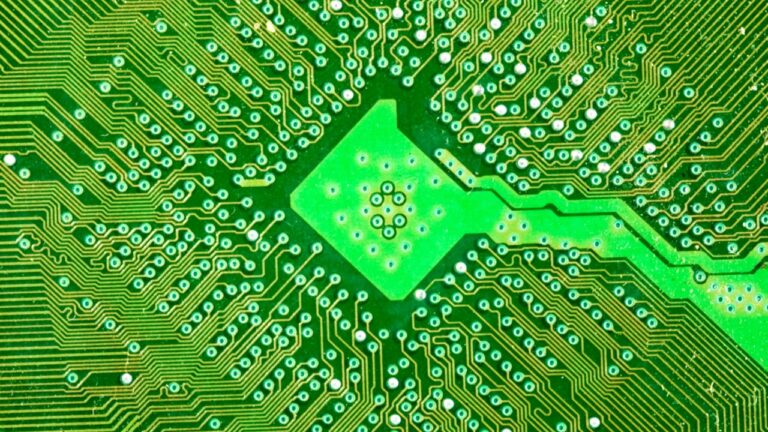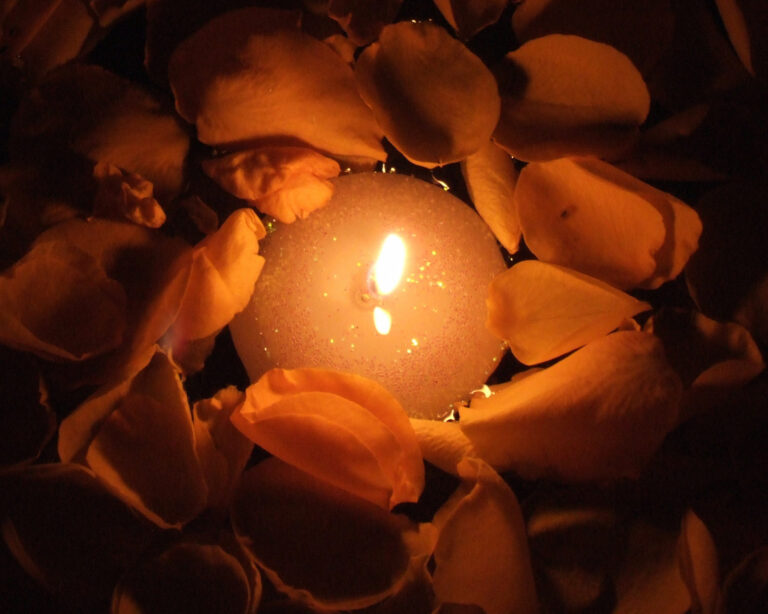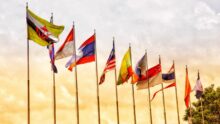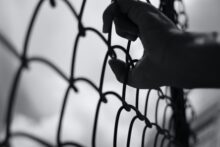Students Of The Department Of Exact Science And The Threat Of Radical Ideology

Muhammad Sofyan Tsauri or familiarly called Sofyan Tsauri is a former member of the National Police who has served for 13 years. He was expelled from the police because he was involved in a terrorist group after being assigned to Biureun Aceh, in 2002. Initially he joined the Al-Qaeda network and served as a supplier of weapons to terrorist groups in Indonesia, then later he joined the Dulmatin terrorist network. Sofyan Tsauri calls himself the biggest arms supplier in the history of terrorism in Indonesia.
Apart from being a supplier of weapons, he also acts as a recruiter and trainer for people who want to carry out acts of terrorism. Even though he comes from the police, Sofyan Tsauri cannot deny that there is a great opportunity to fall into the “Extremist Ideology”, this is because the police are more attached to the juridical aspect or the black and white aspect (may and may not), this black and white aspect is what known as zero intolerance.
“Zero intolerance is what causes a person’s perspective to become narrow, because all cases are only seen from one point of view, everything must be certain, there should be no difference,” he said.
Sofyan Tsauri stated that based on data from the State Intelligence Agency (BIN) which found that there were 2% of police officers exposed to radical ideology, and 3% of TNI members, even 1 in 10 ASN had also been exposed. Apart from himself, Sofyan Sauri said that there were many members of the TNI and Polri who were also involved in radical groups. From the TNI, such as Sabar Subagyo, former Kopassus TNI AD who became the commander of Laskar Jihad and had a big role in the Poso riots in 2000, besides that in 2003 he also joined the Indonesian Islamic State (NII) led by Haji Nurdin, and was involved in shooting police and police officers civilians. Together with Santoso, Sabar Subagyo also founded the East Indonesia Mujahidin (MIT), a group with the same ideology as the West Indonesia Mujahidin (MIB) led by Abu Bakar Ba’syir, which had been established previously. Sabar Subagyo was shot dead by the Special Datasemen 88 Anti-terror Team in an ambush in Parigi Moutong, Central Sulawesi.
In addition, from the TNI membership, there is also the name Yuli Harsono, who comes from the Sogir network, who in March and April 2010 attacked the Purworejo and Kebumen police stations and shot dead three members of the local police. proven to be selling ammunition. After the attack that killed members of the police in Kebumen and Purworejo, the Densus 88 Anti-terror team managed to shoot Yuli Harsono dead at his home, Klaten (Indonesia).
Meanwhile, members of the police in 2019 found the names of Bripda Rini Ilyas and Bripda Nesti Ode Samili who joined the Bekasi Ansharut Daulah (JAD) group led by Abu Zee Ghuroba alias Fazri Pahlawan and affiliated with ISIS, both of whom had been prepared to become suicide bombers. planned to be detonated at the Yogyakarta police station.
“Terrorist ideology and ideology is brainwashing and can target anyone regardless of social status, be it the TNI, POLRI, ASN and even students who are much more exposed to the notion of terrorism even though they are still at a radical and intolerant stage, and this is the main seed for the growth of terrorist ideology,” because it is certain that a terrorist is radical and intolerant,” said Sofyan Tsauri.
The National Counterterrorism Agency in 2018 stated that 39 percent of students in Indonesia, both from State Universities (PTN) and Private Universities (PTS) were exposed to radicalism, with three levels of exposure, namely high (sympathetic), medium, and low, and the number continues to grow every year. BNPT also released a report that most of the exposed students were from the exact and medical faculties. In line with the findings of BNPT, Sofyan Tsauri also stated that people with exact science backgrounds are more susceptible to being exposed to radicalism and extremism compared to people from social sciences.
“Exact people are more susceptible to being exposed to radicalism and extremism because in fact they are rational people, who view religion from a rational perspective and are unable to view a case from a broad perspective. This means that everything must be certain. Likewise their understanding of religion, they understand religion in black and white, and this black and white understanding is called zero intolerance, because in it there should be no difference. So that this thought is fertile among MIPA, Engineering, and Medicine people. In contrast to people from the social department who have more immunity power in preventing the entry of radical ideas, because they are better able to see things from a wide point of view. This means that they are able to see an issue in its entirety,” Sofyan Tsauri explained.
The black and white thinking in question is the inability of a person to understand religious doctrine from the point of view of the social context behind the emergence of a proposition. For example, if someone gets the doctrine that the law of Jihad today is Fardhu a’in, then in the minds of people who have a black and white mindset, humans must strive for jihad because the law is fardhu a’in regardless of the context. They do not see the context of fardhu a’in in ancient times, and for what problems. People with black and white thinking patterns are unable to see the context in which the arguments are issued, related to geo-political conditions, and social conditions in ancient times.
Some cases of terrorism carried out by exact people are such as the case of the arrest of a suspected terrorist with the initials KDW alias Abu Aliyah Al Indunisy (2021) who is a graduate of the Faculty of Mathematics and Natural Sciences (F-MIPA) University of Indonesia (UI), he is in charge of supplying materials. – chemicals used to make explosives by a number of terrorism suspects. Furthermore, the arrest of Sony Jayadi, Afham Ramadhan who is a student majoring in Physics, Faculty of Science and Technology UIN Syarif Hidayatullah Jakarta (2009), who was caught for helping the terrorists Syaifudin Zuhri and Muhammad Syahrir who was shot dead by the Densus 88, a former terrorist convict who graduated from Chemical Engineering ITB, then Bahrun Naim who is an alumnus of the Computer Department of the Faculty of Mathematics and Natural Sciences (FMIPA) UNS who is a member of ISIS, besides that there is also the name Barkah Nawa Saputra, a final semester student of Electrical Engineering, Faculty of Engineering, Muhammadiyah University, Surakarta. (UMS) who was arrested by Densus 88 in Solo (Indonesia).
Seeing this phenomenon, a researcher from the Political Psychology Laboratory at the University of Indonesia, Dr. Joevarian Hudiyana told The Apex Chronicles that there are two hypotheses or possibilities based on a theoretical perspective that cause people from the exact sciences family to be more vulnerable to radicalism and terrorism compared to people from the exact sciences. from the social sciences. First, it is true that there are significant differences between the exact sciences and the social sciences. Second, the difference is grossly exaggerated.
Joe said that the natural sciences and the social sciences are different, in the sense that the natural sciences are only dominated by understandings related to scientific clauses, for example, natural law, the law of gravity, the law of conservation of energy, and so on so that natural science provides certainty or answers about the universe. They assume that knowledge about this world can be understood when we see and observe nature, so that humans can formulate natural laws.
Meanwhile, in social science, the pattern of understanding is more varied, in addition to understanding related to scientific clauses, it is also balanced with understanding related to social constructionism, (social construction). so that people from social science do not get their knowledge directly when humans see and observe nature, but knowledge is the result of human construction. This means that something obtained from nature is not immediately considered as truth, but must go through filters from humans, to determine what is good and not good, what is important and not important, what is valuable and not valuable, and so on.
Likewise, when they understand religion, social people are able to see religion from the perspective of social construction, so they see religion as a result of human construction regarding the interpretation of propositions related to human social conditions, between arguments that are appropriate and not in accordance with the conditions of the times. On the other hand, exact people understand religion from the perspective of nature and regard religious propositions as divine powers whose truth is certain.
“Studies on radicalism and terrorism see that there are patterns of cognition that can be regarded as empirical support for perpetrators of radicalism and terrorism, namely the need for certainty. The more people have a high need for certainty, the more they will try to find something unambiguous, they prefer a black and white view, something gray will not be accepted. So natural science is very interesting for people who have a very high need for certainty,” said Dr. Joevarian Hudiyana.
Joe emphasized that this is what causes people from the exact family to be more easily exposed to radicalism and terrorism. However, we cannot conclude that people who study natural sciences will become radicals or terrorists, because according to Joe exposure to someone with an extremist ideology does not occur because of a single factor but multi-factor meaning that they need other factors to activate radical and extremist thought, not only a matter of the natural sciences.
We need to look at the factors behind the individual both psychologically and sociologically. Psychologically, a person is vulnerable to being exposed to radical ideologies due to the perception of injustice, the need for the meaning of life, and the need for certainty. While sociologically the main factor is related to how the individual relates to the people around him. Joe sees that there is an exaggerated difference factor, because according to him exposure to a person with a radical ideology must also look at other factors behind it.
“In research on radicalism and terrorism, cognitive factors are not the only ones, they must also be linked to other psychological factors. In fact, both natural sciences and social sciences also have the potential for vulnerability to be exposed, although the possibility is still greater in the exact sciences. , and the social science family is smaller, but it’s possible,” said Dr. Joevarian Hudiyana
One example of the arrest of the man who is familiarly called Jack was carried out by Densus 88 in 2018 at the University of Riau (UNRI). He was arrested with evidence of four homemade bombs ready to explode. Jack is an alumni of the Riau University Faculty. He is linked to the network of Batty Bagus Nugraha alias Khalid, from the Jamaah Ansharut Daulah (JAD) group. Apart from that, Fajar Firdaus, from the Psychology Department of UIN Syarif Hidayatullah, Jakarta, was also arrested. This is evidence that social majors also have the potential to be exposed even on a small scale.
An observer from the Center for Radicalism and Deradicalization Studies, M. Taufiqurrahman confirms this that actually both the exact and social science groups are vulnerable to being exposed to radicalism and terrorism, but what distinguishes the exact science department is the cognitive factor that is ready to accept doctrine. People from the social science family actually also have the potential to be exposed, but the numbers are not as many as exact people, they dominate.
“The process of radicalization by groups at universities does not occur directly and instantaneously, but is a tiered process. For example in the Faculty of Engineering and Mathematics and Natural Sciences, usually they are also influenced by the doctrines conveyed by both lecturers and seniors who have been in charge of cadre for decades, plus groups like this also metamorphose or change, they experience radicalization processes in the following places. for example, initially they joined the Muslim Brotherhood or HTI group, and the Salafis then they crossed to a much more radical group, so that the people in the terrorist group on average came from the Muslim Brotherhood, HTI and Salafi. Because the method of learning religion in this group is suitable for exact people, because of that black and white doctrine is easy for exact people to understand. They give practical and definite things, such as promises of heaven’s reward,” said Sofyan Sauri.
In addition, Taufiqurrahman added that social media and studies conducted both offline and online also play an important role in the process of spreading this radical ideology. One way to avoid potential exposure is to get used to being critical, don’t feel intimidated easily, and to cultivate reading habits so that we can know the bad things of this group.
“The pattern of spreading their ideology may have been very structured and planned, but at least we can avoid it by growing a culture of critical thinking,” he concluded.



